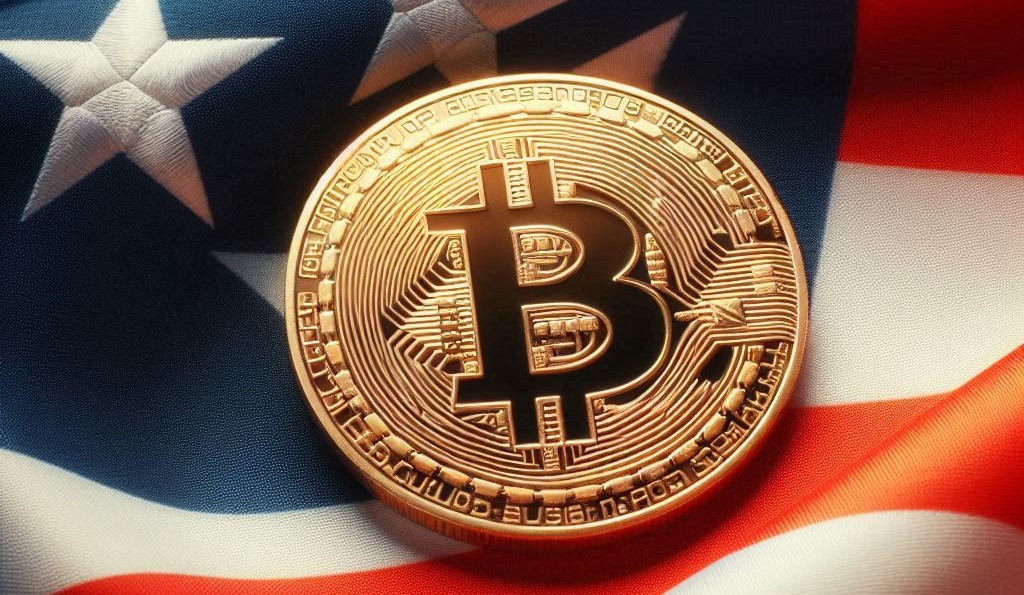Bitcoin mining in the United States has a significant global dimension. Today, more than 35% of the hashing power in bitcoin comes from this country. And in a few days, the leadership of the country with the second largest mining power in the world will change, after the new president is decided in the elections on November 5.
Could the future of mining activity in the US be affected by the results of these elections? Can Donald Trump or Kamala Harris and their cabinets in some way affect an increasingly consolidated industry in the country?
Donald Trump: from pro-fiat to bitcoiner
“Bitcoin mining may be our last line of defense against a CBDC.” Those words, which could have been spoken by an anti-statist bitcoin privacy advocate, Donald Trump wrote them on June 11, 2024 on social networks.
Three years earlier, the former president wanted the US currency to be the world currency, and said that he didn’t like bitcoin “because it is another currency that competes against the dollar.”
Just hours before criticizing CBDCs and proposing Bitcoin as an alternative in his post, the candidate for president of the United States held a “round table” at the Mar-a-Lago Club, in palm beachFlorida, with some mining company executives. He sat down with representatives from Riot Platforms, Marathon Digital Holdings, Terawulf, CleanSpark, Core Scientific, Arkon Energy, Cholla Energy and Exacore, several of the largest in the world.
“Our industry intends to make bitcoin and cryptocurrencies a defining issue for the 2024 election,” said David Bailey, organizer of the roundtable with Trump, according to a exclusive information from CNBC media.
Immediately afterwards, Bailey assured that the bitcoin and cryptocurrency industry promised to contribute in a non-modest way to the campaign of the president. The promise: “raise more than $100 million and attract more than 5 million voters for Trump’s re-election effort.”

Donald Trump went, in the span of a few years, from “Bitcoin, it just seems like a scam” (translation: Bitcoin seems like a scam) in 2021, to consider that The United States should be the dominant country in cryptoactive mining above China, its biggest competitor. Also to promise to free Ross Ulbricht and fire Gary Gensler.
“I will make sure that the future of cryptocurrencies and bitcoin is made in the US,” he said in Nashville, Tennessee, during the Bitcoin Conference 2024, as reported by CriptoNoticias. This end-to-end change in opinion about Bitcoin was surely operated under the influence of political dreams such as those induced by donations. “That is why I am proud to be the first major nominated party in American history to accept donations in Bitcoin and cryptocurrencies. Since we made that announcement on May 21, we have already raised $21 million in bitcoin, cryptocurrencies and others,” he also said at the conference.
Until proven otherwise, which is only possible if he is elected president, the friendship between Trump and Bitcoin is due to budgetary and campaign reasons ahead of election day, November 5.

Although his support for bitcoin is due to the need to finance his campaign, Trump has demonstrated a minimally efficient knowledge of the terminology and language of “coiner”, which facilitated his communication with the sector of the US population close to the economy with cryptoactive assets. .
That detail consolidates it as the presidential alternative more suitable for the interests of the community that uses cryptocurrencies.
Scenario One: Donald Trump wins the 2024 presidential election
Regardless of whether Donald Trump sees bitcoin as the next global reserve currency whose geopolitical control the United States must secure for the sake of a prosperous future; or that he sees in it another currency, one with an industry around it capable of positioning the country as a technological vanguard and bringing economic growth; Regardless of whether support for bitcoin is nothing more than a sure way to gain support and differentiate himself from the Democratic party and Kamala Harris, his opponent in the elections, the outlook for bitcoin mining in the United States under Trump is positive.
The size of this effect is what can vary depending on bitcoin and cryptocurrencies, which Trump usually puts on the same ranking, whether they rise or fall on his priority agenda.
If Donald Trump truly believes that “bitcoin is the last line of defense against CBDCs,” producing bitcoin in the United States while limiting the SEC’s influence over the crypto asset and the cryptocurrency industry will be a necessity.
In such a scenario, bitcoin mining will have a prosperous development in the country, whether in the public and government sphere, through the famous bitcoin reserves; or in the private sphere and in the industrial sector, favoring the country’s companies and economy alike.
If, on the other hand, the one about bitcoin and CBDCs was a line learned by heart, and Trump has no real intention in giving preeminence to Bitcoin, BTC mining is likely to continue its growth curve which started in 2020. That year it had only 0.30% of the global bitcoin hashrate by November 2020; In September 2024, it already dominated up to 37% of the hashrate.
If Trump wins, the least likely scenario is that the former president will reverse his pro-bitcoin speech and return to the line of defense, but in favor of the dollar. As for Trump, bitcoin competes against the American dollar, the new government of the American nation would be a continuation of the current one, which discourages the use of bitcoin and is not characterized by its softness and tolerance towards the industry.
Kamala Harris: a path of uncertainty for the industry
As reported by CriptoNoticias, Kamala Harris, 60 years old, has not yet taken a clear and official position on bitcoin and cryptocurrencies. For this reason, the fate of bitcoin mining in the United States under Harris seems more discouraging than with Trump.
In general, Harris’s political campaign has made less reference to the population group that uses cryptocurrencies, and many people consider that it is an issue neglected by her administration as vice president of the country.
From the community closest to cryptocurrencies, Kamala Harris is seen as the least suitable presidential candidate to favor this industry. This “aversion” to Kamala Harris comes from the fact that she announced an “opportunity agenda for black men” in the use of crypto assets.

This agenda would introduce regulations based on social criteria of race, which part of the community interpreted as a criterion foreign to Bitcoin, a decentralized system open to all, that cannot discriminate against people based on identity traits.
Scenario Two: Kamala Harris wins the 2024 presidential election
Unlike Trump, whose speech is less statesmanlike and promotes free initiative, Kamala emphasizes regulations and consumer protection. “We will promote innovative technologies such as AI and digital assets, while protecting our consumers and investors,” he said in September 2024, when he first mentioned cryptocurrencies as part of his agenda.
Although movements not officially linked to Harris have tried to open a channel of communication with the cryptocurrency industry, this candidate’s agenda on the subject lies in limbo.
It is difficult, therefore, to predict what would happen to bitcoin mining and cryptocurrencies in the United States if Kamala Harris were elected president.
Due to its initial emphasis on regulation and its lack of knowledge of the industry, it suggests that it is most likely that carry a continuity agenda with the Joe Biden administration.
This continuous line seems clearer if we take into account that Biden and Harris belong to the same political party, and serve as president and vice president of the United States.
In terms of energy, something can be deduced about Harris’ hypothetical stance on mining.
As mentioned an American political outletthe vice president along with Joe Biden has banned oil activity on millions of acres in Alaska’s Arctic National Wildlife Refuge. It is also seen as having “slowed down” drilling permits.
Certain measures in economic policy would have also increased the cost of electricity, which is not convenient for the industry in general, nor for Bitcoin mining in particular.






Leave a Reply